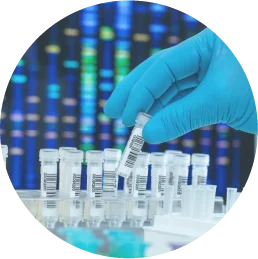With Father’s Day approaching, I found myself in a bit of a melancholy state. I can’t imagine a day when I won’t be able to just pick up the phone and call my dad. I can’t imagine a day that I won’t need him, and I don’t want to. So, I got him a present for both of us.
I worry about my dad.
I know I’m not alone in this. Every year our parents get a little older, and we worry about their health and wellbeing a little more. It’s natural we want to keep them around as long as possible. With Father’s Day on the horizon, this is top of mind for me.
My dad has a very, “if it isn’t broken don’t fix it” view of going to the doctor. In other words, he considers his ignorance his bliss when it comes to his health. But as my mom (or any woman) would tell him, men’s healthcare isn’t meant to be a once-a-decade check-in or a call to a doctor only when something really hurts. To remain in good, quality health as you age, it takes a dedication to knowing all there is to know about your body and mind. You should know as much about the performance of your body as you do your stocks. Regular checkups, preventative screenings, and advanced diagnostics are the key to helping men live stronger, longer, and more active lives.
Unfortunately, several recent surveys indicate my dad is not alone when it comes to avoiding “routine maintenance.” According to a Cleveland Clinic study, roughly 60 percent of men do not get regular checkups and will only go to the doctor if they are seriously sick. The Centers for Disease Control reports that women are 33 percent more likely to visit the doctor than men, and women are 100 percent better at maintaining screening and preventive care. Men on average also live more years in poor health and die five years sooner than women.
Does this mean men care less about their own well-being? When I asked my dad why he doesn’t go to the doctor he told me, “I don’t want to know what all is wrong with me!” Again, it seems he’s not the only one. Research from Orlando Health found that the most common excuse men gave for avoiding preventative care was “too busy,” followed by, “afraid of finding out something might be seriously wrong.” Finally, men cited the discomfort of exams like prostate checks, testicular exams, and colon cancer screenings as another top reason.
I can’t lie to you – a digital rectal exam is not known to be particularly fun. But less screening has historically caused some alarming trends in cancer mortality and metastasis among American men, specifically in prostate cancer cases. Sadly, prostate cancer is the second leading cause of cancer death in American men.
In the early 1990s, the American Cancer Society reported a spike in cases due to “a surge in detection of asymptomatic disease as a result of widespread prostate-specific antigen (PSA) testing among previously unscreened men.” In 2007, the US Preventative Services Task Force recommended against PSA testing due to concerns of over-diagnosis. Just a few years later, the number of advanced-stage prostate cancer cases had increased significantly, leading the USPSTF to reverse their stance on PSA testing, realizing the important role the blood test played in early detection.
The ACS predicts that there will be more than 248,000 new cases of prostate cancer diagnosed this year and that the disease will account for 26 percent of all male cancer deaths nationwide. When caught early through screening, prostate cancer is curable in over 95 percent of men. This is when treatments are more effective, and men have more options for treatment, like minimally invasive laser focal therapy. When discovered too late, however, options become limited, and the disease terminal.
All this to say for Father’s Day, I got myself a little peace of mind. I scheduled my dad an annual PSA blood test. A single PSA test doesn’t diagnose prostate cancer, but trends in changes over time can. An uptick may indicate the need for further diagnostic tests like a non-invasive prostate MRI, genomic testing, or MRI-guided biopsy. While I can’t control whether or not my dad develops clinically significant prostate cancer, I can help him be mindful of it.
Are you worried about prostate cancer? Is there a family history? Are you reading this and thinking about a loved one? If you are concerned about, diagnosed with, or worried about someone close, this Father’s Day, HALO Dx is offering a free prostate cancer consultation. To learn more about the HALO Dx men’s health screening and diagnostics program, call 760-469-8057.
To all the father figures out there, we wish you health and happiness this Father’s Day. May you be well!




